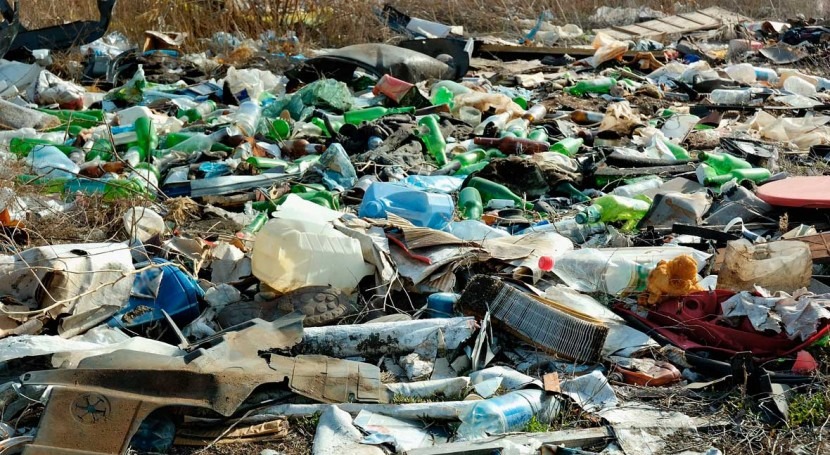The environment offers us opportunities to thrive.
But careless human activities have adversely exposed us to threats that not only lead to environmental damage but to health complications.
The rise in cancer cases especially among the urban poor in sub Saharan Africa may partly be attributed to improved diagnostics.
However, careless environmental practices coupled with emerging pollutants of concern seem to be defining new health related realities among the most vulnerable.
Even as a layman, it’s hard not to draw some correlation between our state of physical health and the environment.
Hard questions must be asked however much discomfort they generate because finding solutions needs an understanding of underlying problems.
For example, it’s not hard to picture informal settlements built next to industries and factories in many cities in developing nations.
Many of these households do not have basic amenities like piped water and sanitation.
But what happens when these industries release untreated effluents into surrounding waterways?
What is the plight of people living in these settlements many of whom depend on the same waterways for existence?
What happens to the air they breathe which carries unimaginable amounts of toxic substances from industrial emissions?
What happens when rubbish dumps (which support the poorest) go up in smokes releasing a mixture of gases and particulates whose effects are not fully known?
Isn’t it a wonder that majority of the cases of heavy metal poisoning affect those who’re the most vulnerable among us?
But beyond industries, it’s hard to imagine how mineral fertilizers could introduce toxic agents into our food.
But this is a possibility in our age of profiteering through unethical ways.
It’s normal for most manufacturers to publicize nutrient levels of fertilizers but not the impurities that are hidden in them.
For instance analysis has shown that some phosphate-based fertilizers have significant amounts of heavy metals such as cadmium.
Though in trace quantities, continuous cadmium ingestion over time carries with it a high risk of kidney failure and bone damage. Besides, cadmium is a documented carcinogen.
But apart from cadmium other toxic heavy metals analysed in fertilizers include lead, arsenic and chromium all of which are documented or probable carcinogens.
But beyond the fertilizer question, pesticide use always continues to be a source of concern in agriculture.
Though pesticides are meant to target pests, some of them are a threat to any form of life.
Ever asked yourself why pesticide sprayers put on personal protective equipment?
For example organophosphate pesticides such as chlorpyrifos possess the same deadly but milder capabilities as nerve agents like Sarin gas, a chemical weapon.
Also though some pesticides have been banned, their residues can still be found in soil long after application because of their slow breakdown.
Take for instance lindane, a banned carcinogenic pesticide whose residues are still present in several agricultural soils long after use.
Several fruits, vegetables and even water have been analyzed as having levels of lindane among other related pesticides such as aldrin.
But if pesticides and fertilizers do not trigger our interest, pharmaceutical pollution should.
Pharmaceuticals together with a new brand of toxins called endocrine disruptors are fast gaining top notch notoriety as environmental pollutants.A research done to determine the extent of pharmaceutical pollution in water from selected neighbourhoods in Nairobi revealed an astonishing level of pharmaceutical and related pollutants.
What this means is drinking untreated water contaminated with pharmaceutical products may lead to increased bacterial resistance during medical treatment.
But also important are the presence in water of endocrine disruptors such as bisphenol A and hormonal supplements used in birth control some of which are potentially carcinogenic.
Lack of sanitation especially in informal settlements may lead to release of such substances into water sources exposing populations.
But lastly, our air though free for all carries a message with it.
A message choked with pollutants from diesel exhausts, burning plastics and industrial emissions among others.
We can choose what we eat and drink.
But we cannot choose the air we breathe.
That by itself makes tackling air pollution a subject of critical concern.
Take for instance the fumes released by heavy commercial vehicles most of which run on diesel. Diesel exhaust is known to contain a concoction of gases and particulates containing traces of polycyclic aromatic hydrocarbons; some of which are documented human carcinogens.
Besides diesel exhaust, burning of plastics is an issue of great concern especially in low income urban neighbourhoods.
Burning plastics releases a concoction of toxic gases including but not limited to dioxins and furans; some of which are documented carcinogens.
But besides plastics, general burning of wastes increases the likelihood of production and escape of other toxins produced by intense heat such as benzo (a) pyrene and heavy metals.
In conclusion
Our environment is an asset we’re holding in trust for future generations.
Such challenges should not lead us towards helplessness but creativity and innovation in problem solving.
Where are the social entrepreneurs?
Where are the tinkerers who can try and test prototypes which would clean our water, filter our air, give us safe food and improve industrial processes?
Who is willing to rise up to the challenge?
It doesn’t matter your level of education.
All that’s needed is a heart and a desire to improve the lives of other people.
Originally posted on John Mmbaga's blog






